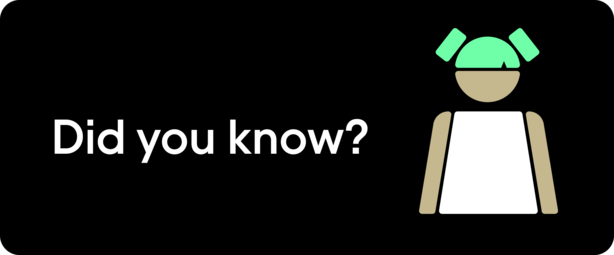Eligibility and Application of ESC A19 for Freelancers

In the complexity of tax regulations, ESC A19 stands out as a crucial provision that can benefit self-employed workers. Understanding its eligibility and application process is vital to ensure you claim this relief correctly. This article will explore the essential aspects of ESC A19, equipping you with the knowledge to enhance your tax strategy effectively.
ESC A19 is designed to provide tax relief under specific circumstances when HMRC has failed to act on tax information they received. For self-employed professionals, this can be a highly beneficial relief, especially when tax errors occur due to HMRC’s delays.
By understanding the nuanced criteria and application process, freelancers can navigate the challenges of tax management more effectively. Whether you're catching up on your taxes or navigating an unfamiliar error, grasping ESC A19 is essential.
Key Eligibility Criteria
To be eligible for ESC A19, the tax underpayment must be due to an error by HMRC, not the taxpayer. It's essential that taxpayers notify HMRC within a reasonable timeframe once they become aware of the error.


Applying for ESC A19 Relief
The application must clearly demonstrate HMRC’s oversight. Enlist the help of our expert tax assistants to ensure your application is comprehensive and correctly filed.

In recent years, HMRC admitted oversight in cases amounting to £50 million in tax reliefs granted under ESC A19, showcasing its impact on taxpayers.£50 Million Saved in Tax Errors

Approximately 20% of self-employed workers who applied for ESC A19 achieved a satisfactory resolution and reduced tax burdens, proving its worth.20% of Self-Employed Benefitted

Comprehensive Understanding of ESC A19
ESC A19 provides vital relief for managing unexpected tax burdens due to HMRC errors. Self-employed individuals often juggle multiple roles, and tax regulations can add an extra layer of stress. With the right knowledge, ESC A19 applications can be a straightforward process for claiming unreceived tax overpayments.
For those who find the process complex, our expert tax advisers can guide you through each step, ensuring no detail is overlooked. As the tax landscape continuously evolves, being adept with ESC A19 could secure significant financial savings.
Practical Steps for Self-Employed Workers
Applying for ESC A19 starts with gathering all relevant documentation showing that the errors were due to HMRC’s oversight. Engage with our expert tax advisers to help navigate the intricacies of your case.
Approaching HMRC requires a well-documented case, illustrating the timeline of correspondence and evidence of oversight. Keeping an organised file is crucial to ensure all critical points are addressed in your submission. Our team can support you throughout this process.

Essential Tips on Understanding ESC A19

What is ESC A19? ESC A19 allows you to request tax relief if HMRC did not act on information you provided on time, leading to underpaid tax.

Qualifying for ESC A19 To qualify for ESC A19, you must have provided accurate information, and HMRC should have failed to use it within 12 months after the end of the tax year.

How to Make an ESC A19 Claim If you believe ESC A19 applies, submit your claim to HMRC in writing, explaining why their delay caused the tax underpayment.

Fun Facts
Did you know there’s a misconception that all tax errors lead to overpayment? In reality, some miscalculations actually favour the taxpayer, meaning less tax paid!
Guidance on Handling ESC A19 Claims

When facing an HMRC error, patience and persistence are key. Begin by confirming the oversight with documentation that supports your claim. Consider a professional review to reinforce your request for ESC A19 relief confidently.
Expert advice can streamline this process, clarifying each step. Our team can help you handle claims smoothly, avoiding common pitfalls along the way.

Professional advice can be invaluable. Turn to chartered accountants or tax advisors specialising in self-employed taxation. They provide insights and strategies to strengthen your ESC A19 application, increasing your chances of a successful claim.Seeking Professional Help

Utilise digital tools for efficient tax management solutions. Automated features can simplify tracking errors, ensuring all applications are timely and complete.Digital Tools for ESC A19 Management
Summary
ESC A19 offers crucial relief for self-employed workers when tax miscalculations aren't their fault. Understanding eligibility can unlock significant savings. Prioritising organisation and seeking expert advice can position you advantageously in the claims process, ensuring every step is seamless and efficient.
Frequently Asked Questions
What is ESC A19?
ESC A19 is a concession allowing you to claim an adjustment for unpaid taxes due to HMRC’s oversight.
Who can claim ESC A19?
Any taxpayer, including self-employed individuals, can claim if HMRC errors affected their tax calculation.
How do I know if I am eligible for ESC A19?
You must demonstrate that the tax error was due to HMRC’s failure and that you met your reporting obligations.
How can I get help with ESC A19 claims?
Trained tax advisers can guide you through the process of filing ESC A19 claims. They offer personalised support, ensuring you have the right information and resources to make your claim successfully.
How long does it take to resolve an ESC A19 claim?
Resolution times vary; however, efficiently organised documentation can expedite the process considerably.




